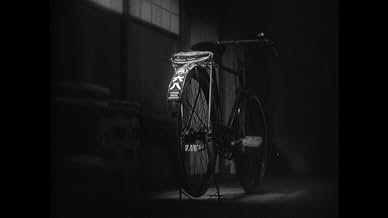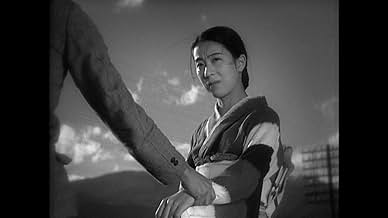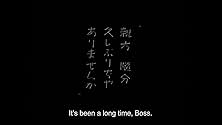IMDb RATING
7.6/10
3.6K
YOUR RATING
A kabuki actor's mistress hatches a jealous plot to bring down her lover's son.A kabuki actor's mistress hatches a jealous plot to bring down her lover's son.A kabuki actor's mistress hatches a jealous plot to bring down her lover's son.
- Awards
- 1 win
Kôji Mitsui
- Shinkichi
- (as Hideo Mitsui)
Emiko Yagumo
- Otaka
- (as Rieko Yagumo)
Chishû Ryû
- Shouting audience member
- (uncredited)
- Director
- Writers
- All cast & crew
- Production, box office & more at IMDbPro
Storyline
Did you know
- TriviaA Moxa treatment refers to the burning of an herb called moxa (aka mugwort) on, or directly above, the skin. Recipients of the treatment generally didn't like the burning sensation on their skin, although this was supposed to enhance circulation and lymphatic flow. Also, the scent of moxa is believed to have a soothing, relaxing effect, which would have been important to counteract the skin irritation.
- Quotes
Kihachi: What did you plan to do with my son?
Otaka: Who cares about your son? He's cheap, like you, playing around with actresses.
[Kihachi beats Otaka]
Otaka: Are you sorry? I hope you'll be very sorry. The world is like a lottery. You take your ups and your downs. Let's make up please. That makes us even, you see. Just think how I feel.
- Crazy creditsThe film title and credits are placed before a backdrop of plain sackcloth. This would become a trademark of Yasujirô Ozu films.
- ConnectionsRemade as Floating Weeds (1959)
Featured review
I was able to see The Story of Floating Weeds for the first time recently, thanks to the Criterion Collection's DVD.
I was led to it when I came across Roger Ebert's list of his ten favorite films (written some time ago).
In his notes, Ebert claims Ozu shows us a "different cinematic language" but I find that kind of talk so much blather. Ozu uses his shots effectively to allow the actors to communicate the emotions being portrayed, especially necessary in this silent film.
A third rate company of traveling actors returns to a town after four years. The leader of the troupe had abandoned his lady in this town years before in order to tour with his company. He has fathered a son by the woman, whom he visits whenever he can, but his paternity is kept secret from his son.
What follows is the exposure of the secret and the effect it has on the lives of everyone involved, and some innocent bystanders as well.
The camera is almost always objective, the acting style is somewhat less melodramatic than in American silent films. There are excellent performances by all.
No time period is given for the story, but I have to assume it is earlier than the year the film was made (1934) because there are no automobiles, no radios, no telephones.
The enjoyment of Floating Weeds lies in the story itself and the ability of the director to tell it compellingly. If you demand car chases or food fights, this is not for you.
The Criterion DVD allows you to watch with or without the specially commissioned score. For first viewing, I recommend without.
I was led to it when I came across Roger Ebert's list of his ten favorite films (written some time ago).
In his notes, Ebert claims Ozu shows us a "different cinematic language" but I find that kind of talk so much blather. Ozu uses his shots effectively to allow the actors to communicate the emotions being portrayed, especially necessary in this silent film.
A third rate company of traveling actors returns to a town after four years. The leader of the troupe had abandoned his lady in this town years before in order to tour with his company. He has fathered a son by the woman, whom he visits whenever he can, but his paternity is kept secret from his son.
What follows is the exposure of the secret and the effect it has on the lives of everyone involved, and some innocent bystanders as well.
The camera is almost always objective, the acting style is somewhat less melodramatic than in American silent films. There are excellent performances by all.
No time period is given for the story, but I have to assume it is earlier than the year the film was made (1934) because there are no automobiles, no radios, no telephones.
The enjoyment of Floating Weeds lies in the story itself and the ability of the director to tell it compellingly. If you demand car chases or food fights, this is not for you.
The Criterion DVD allows you to watch with or without the specially commissioned score. For first viewing, I recommend without.
- mcguffin2001
- May 5, 2009
- Permalink
- How long is A Story of Floating Weeds?Powered by Alexa
Details
- Release date
- Country of origin
- Languages
- Also known as
- Història d'una herba errant
- Production company
- See more company credits at IMDbPro
- Runtime1 hour 26 minutes
- Color
- Sound mix
- Aspect ratio
- 1.37 : 1
Contribute to this page
Suggest an edit or add missing content

Top Gap
By what name was A Story of Floating Weeds (1934) officially released in India in English?
Answer










